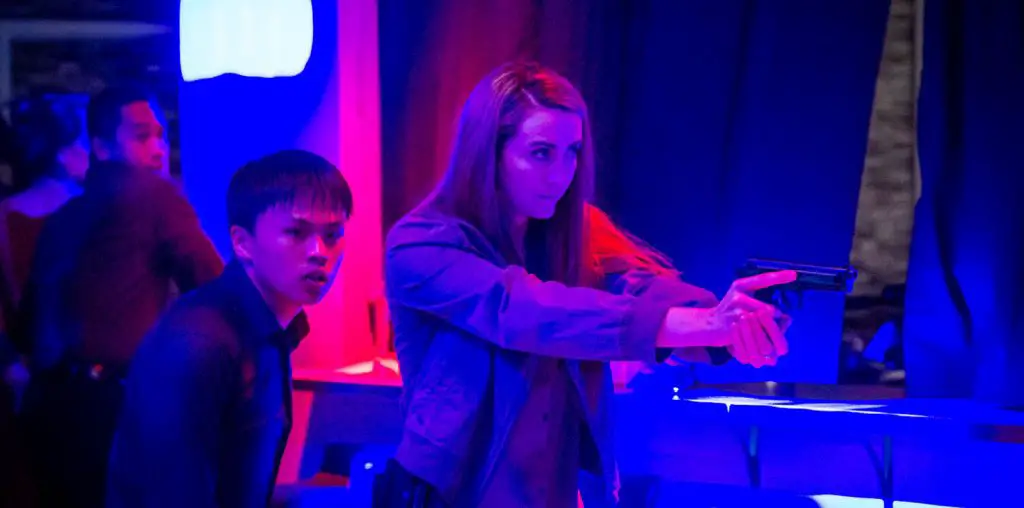
When staying true to its title–which, thankfully, is most of the time–“We Were Soldiers” is an effective war picture, driven by realistic and often horrifying combat sequences. But when screenwriter-director Randall Wallace concentrates his focus on the “Fathers, brothers, husbands & sons” tagline, the film is far less riveting.
Wallace certaintly has his heart in the right place. While warfare dominates the film’s run time and the title simply declares “We Were Soldiers,” Wallace’s primary goal is to humanize the men who took part in the first major battle of the Vietnam War, which lasted three bloody days in November 1965. For the film’s initial stages, Wallace succeeds. Time is spent showing the soldiers and their families settling into their military housing, and the audience gets to settle into the household of U.S. Army Lieutenant General Harold Moore (Mel Gibson), his wife Julie (Madeleine Stowe), and their young children. These early scenes reach a payoff with the mostly wordless sequence where Moore and his men leave their families in the middle of the night and depart for the warfront; the minimalism is rather affecting.
Minimalism quickly goes out the window when Moore and his 450 men of the 1st Battalion, 7th Calvalry land in the Ia Drang Valley and quickly discover that they are overwhelmingly outnumbered by the North Vietnamese troops. Bullets are fired; bombs detonate; and blood and body parts fly in sustained battle scenes that will most certainly prompt comparison to the recently released “Black Hawk Down.” But unlike Ridley Scott, who presented the action in his film in a matter-of-fact fashion, Wallace isn’t above occasionally resorting to easy melodramatic devices, such as cranking up the bombast of the score or using slow motion to punctuate key actions.
Another key difference between that film and this one is that Wallace interrupts the battlefield action with scenes back in the homefront, where Julie takes it upon herself to do the difficult task of delivering telegram death notices. The obvious aim is show the toll of the war on the families and to further keep the soldiers from being completely anonymous, but there’s nothing addressed in these scenes that wasn’t already conveyed by the opening, pre-war passages. Hence, their purpose seems more to give Stowe and Keri Russell (playing a young army wife) some contractually-obligated screen time–screen time that doesn’t feel particularly well-spent for these actresses, given how their talents are mostly squandered in these limited roles.
Similarly, the actors playing the soldiers aren’t exactly tested; all Gibson and his cohorts (including Chris Klein, Greg Kinnear, and Sam Elliott, who gets all the good lines) are required to do are look convincing in battle gear and be likable enough presences. At least Wallace doesn’t call on the actors playing the Vietnamese forces to be “evil.” As in “Pearl Harbor,” which Wallace also wrote (and has publicly disowned), there are a number of scenes showing the American adversary planning their strategy, but here the Vietnamese forces, including Lt. Col. Nguyen Huu An (Don Duong), are not demonized; they are, like the Americans, soldiers simply doing their job for their country–and quite well at that.
“We Were Soldiers” may not live up to its ambition of being more than a tribute to the courage these men displayed on the battlefield, but at least it gets that job done, painting a horrific portrait of war and an inspiring one of bravery under fire.
